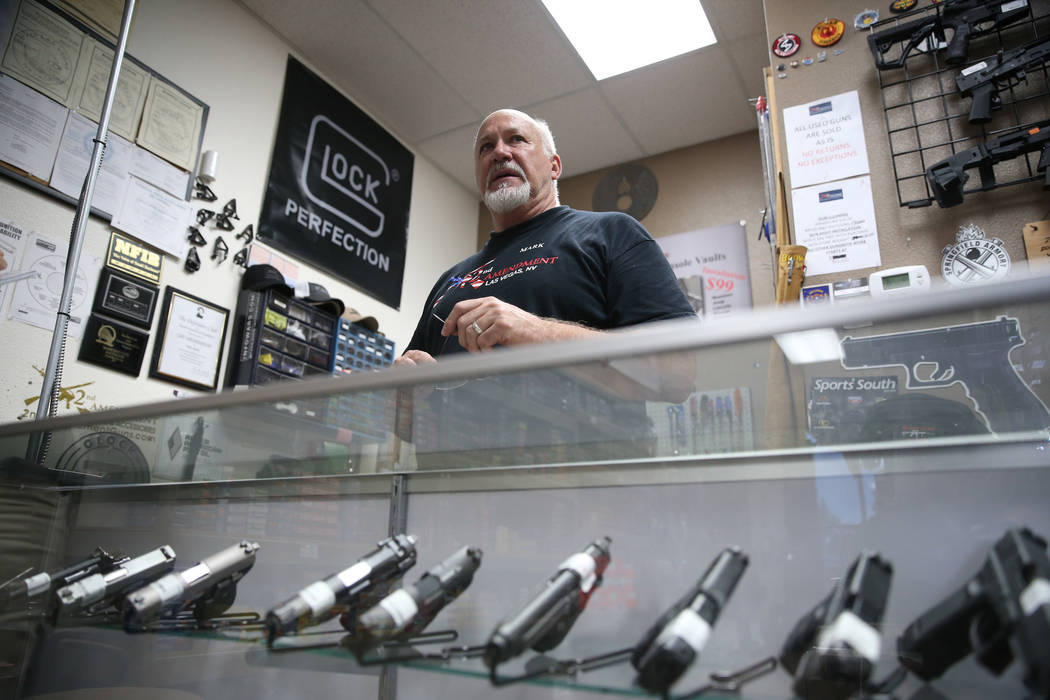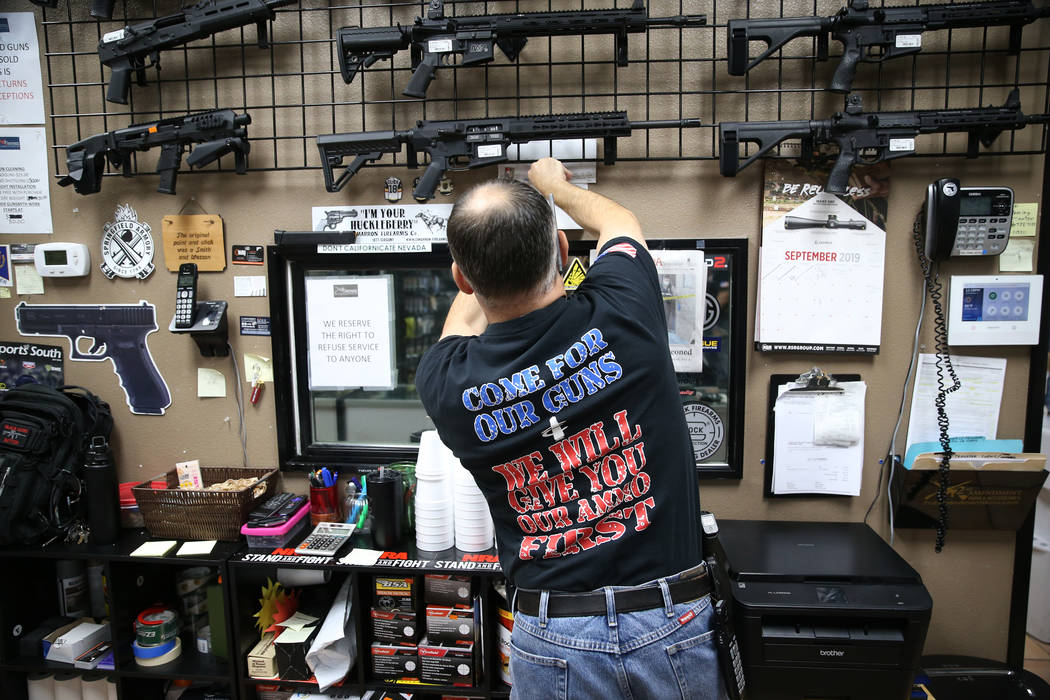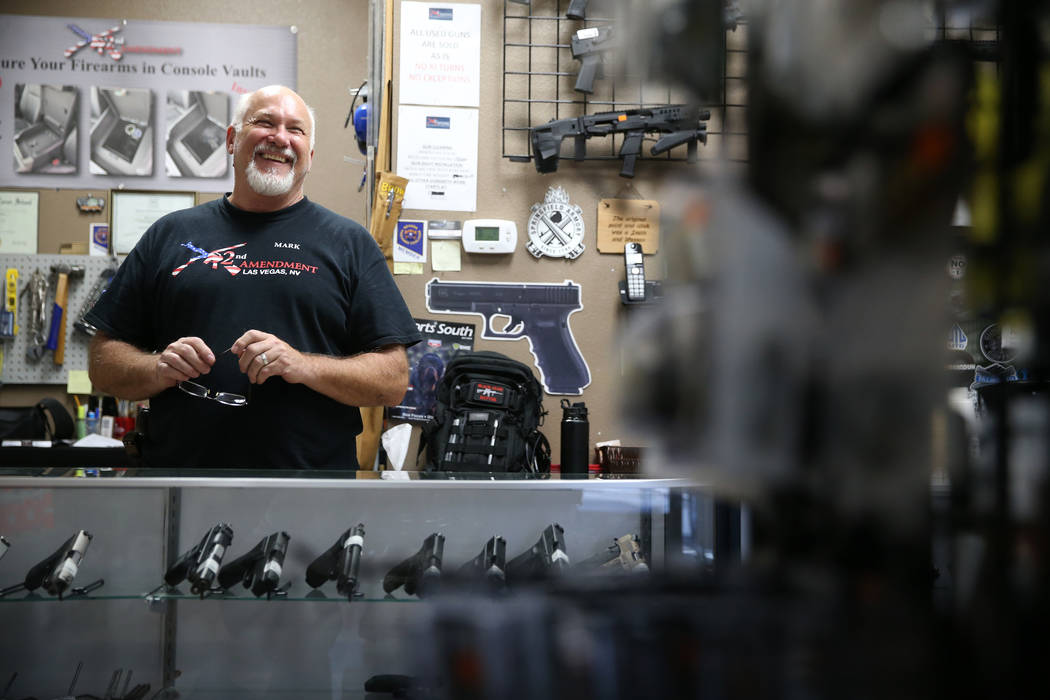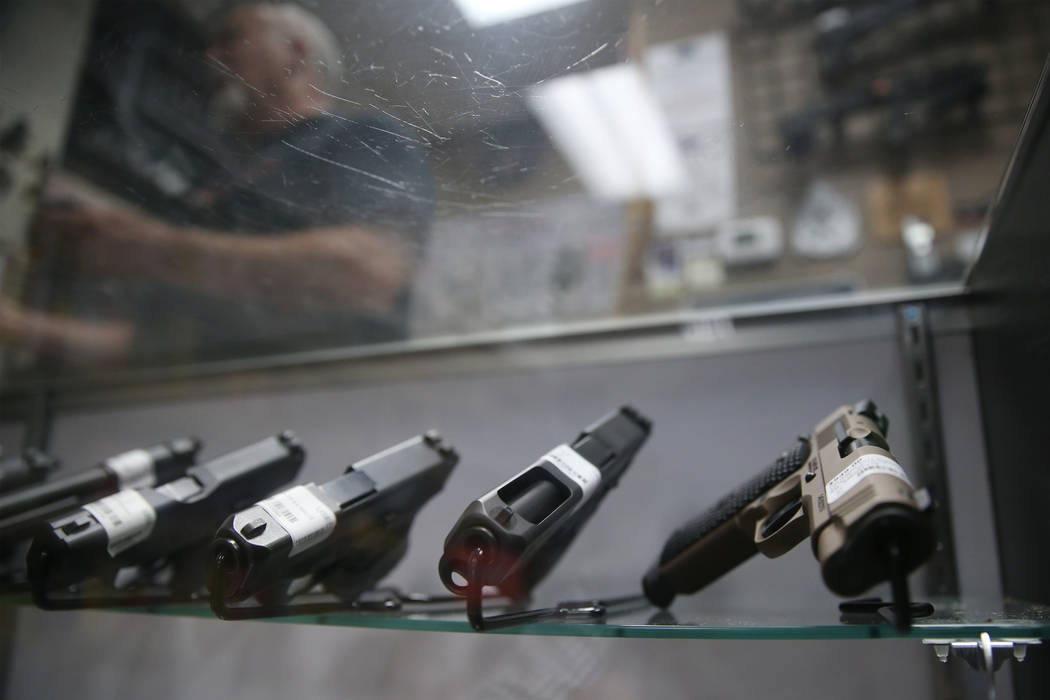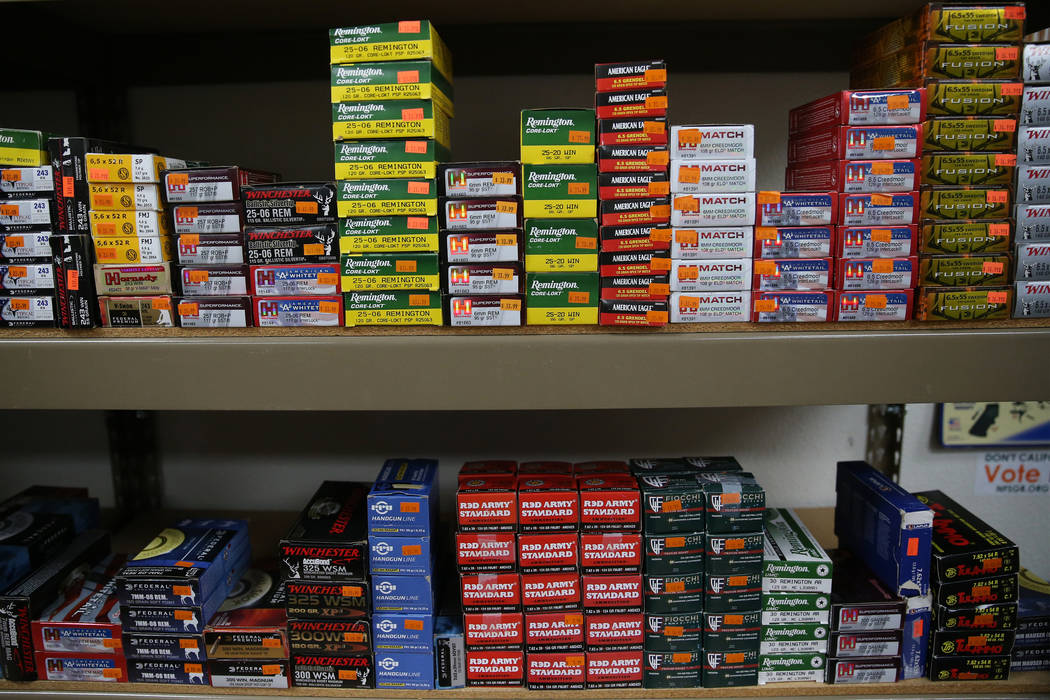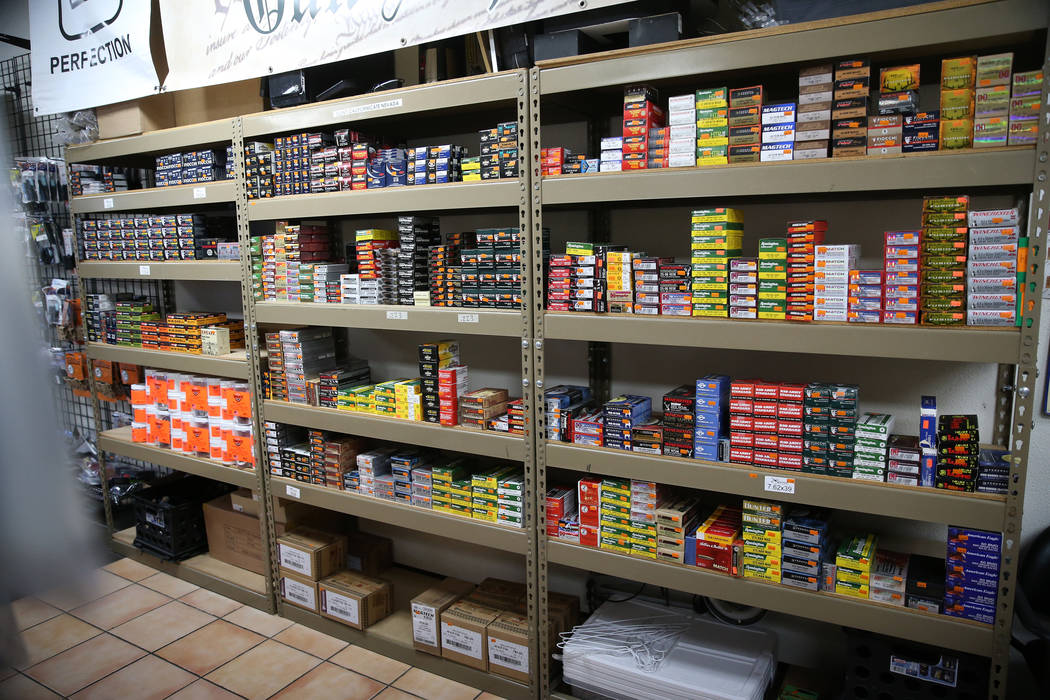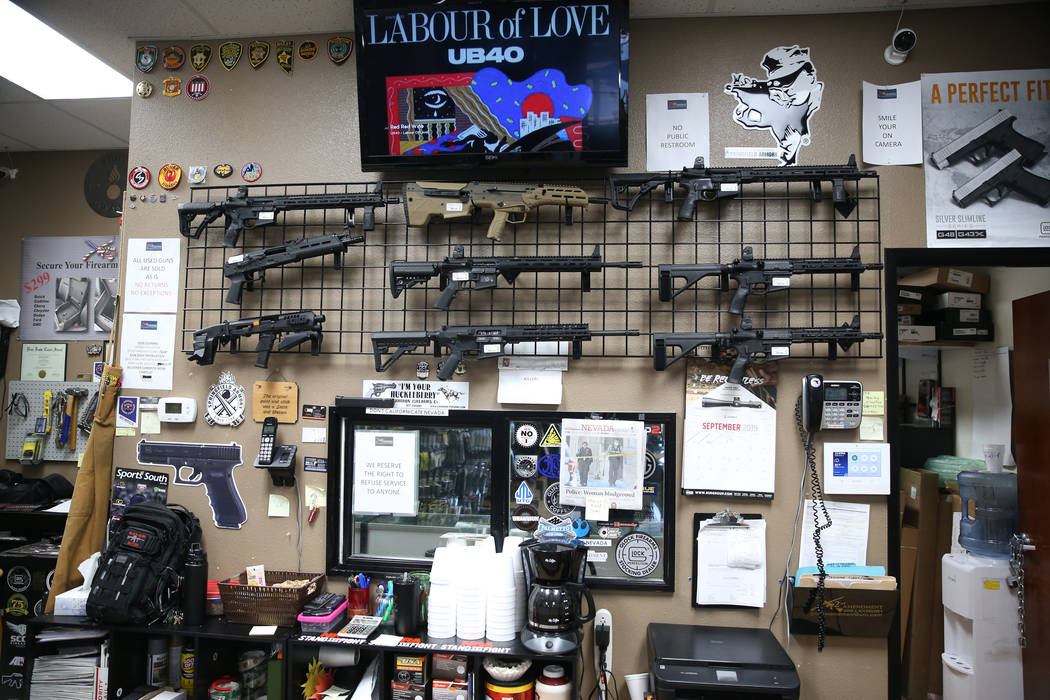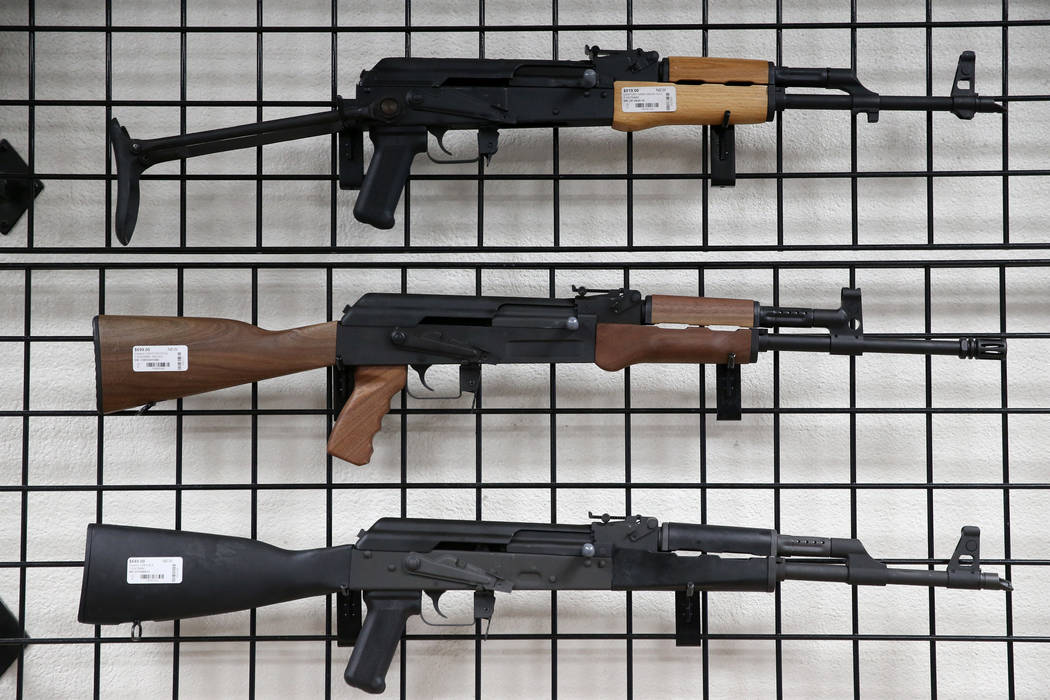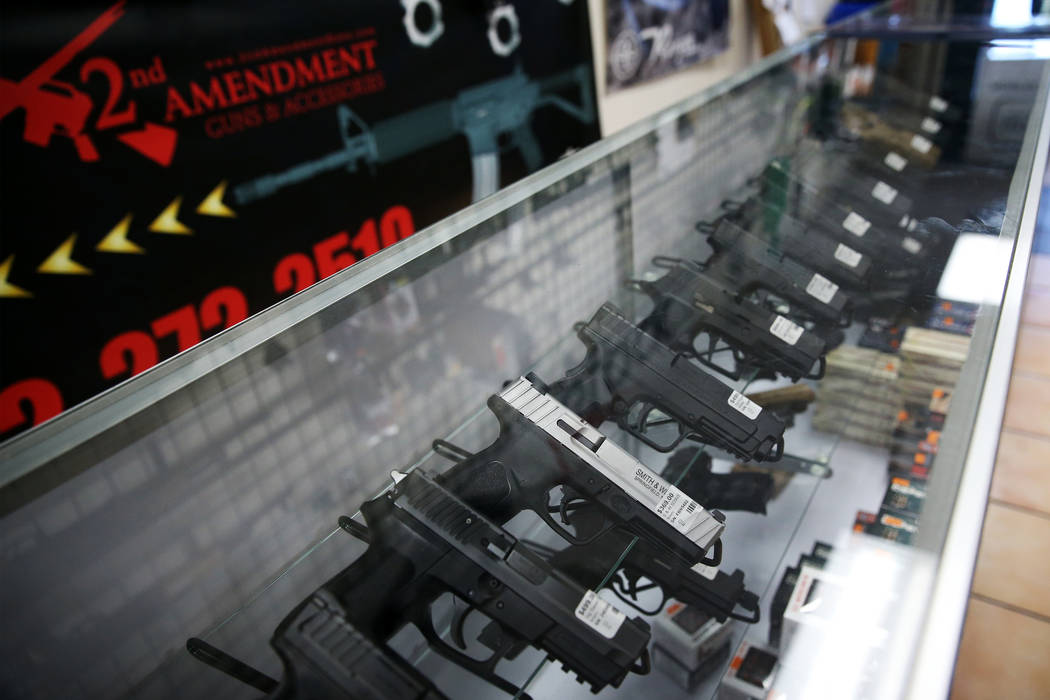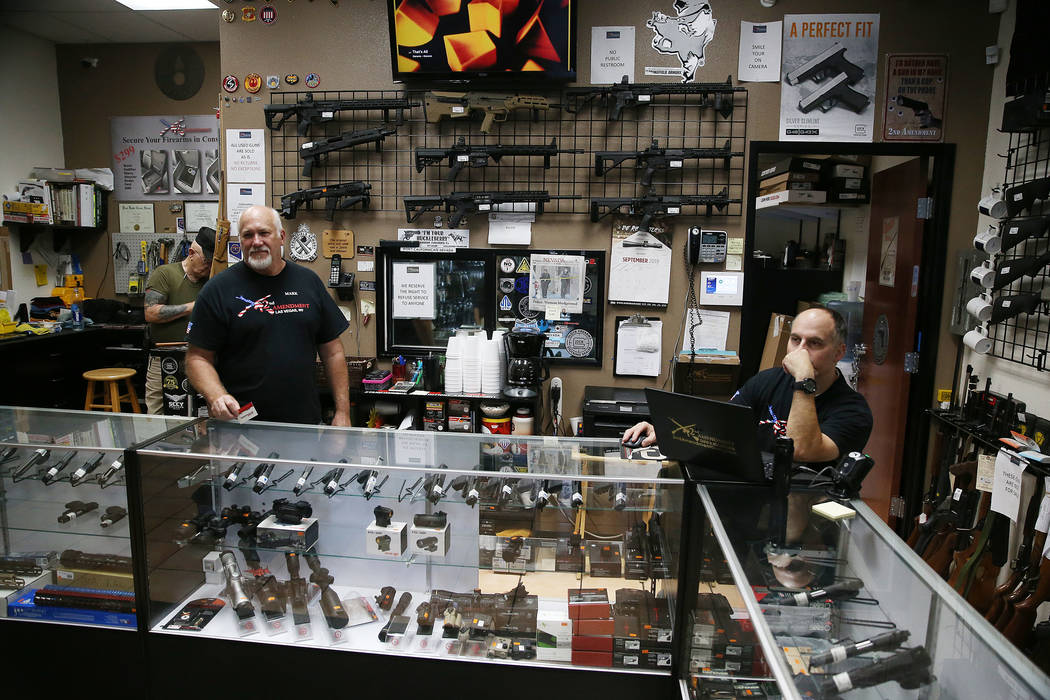Walmart move to ban certain guns, ammo might help Las Vegas shops
It was a typical Wednesday afternoon at the 2nd Amendment Guns & Accessories shop in Las Vegas.
Co-owner Mark Hames chatted with customers as they peered down into the store’s glass case filled with handguns from brands such as Sig Sauer and Smith & Wesson. Walmart’s decision on Tuesday to stop selling certain firearms and ammunition also was a hot topic.
The 7-year-old store, tucked inside a strip center off North Rancho Drive, might get a boost in sales following the move, Hames said.
The decision is “sad news” for the industry, but it’s one that could benefit his shop and others in Las Vegas, he said.
“I think it should increase our sales on handgun ammo,” Hames said. “We already do pretty good business in handgun ammunition anyways, so it should just help us in the long run.”
Representatives at multiple gun shops in Clark County declined to comment on the record but acknowledged an expectation for sales to increase, as Walmart customers probably will head to neighboring firearm and ammunition shops.
The Bentonville, Arkansas-based retailer also found another ally on Wednesday when Kroger Co., one of the country’s largest grocers, announced it would be asking customers to “no longer openly carry firearms” in its stores, including those states that have an open-carry law like Nevada.
Kroger stopped selling firearms and ammunition a year ago at its Fred Meyer stores in the Pacific Northwest.
The announcements from the retail giants come amid a growing push by consumers and consumer advocacy groups to implement stricter background checks and gun reform laws in the wake of several recent shootings including at Walmart stores in El Paso, Texas, and Southaven, Mississippi.
It’s estimated that there have been 287 mass shootings as of Wednesday, according to the nonprofit organization Gun Violence Archive, which categorizes mass shootings as incidents where four or more people are shot or killed.
Dick’s Sporting Goods Chief Executive Edward Stack, known for being a longtime gun owner, decided to pull firearms from 125 of its stores, this comes after the retailer already removed AR-15 and other semiautomatic rifles from its shelves as well as the company’s Field & Stream stores last year.
“Kroger has demonstrated with our actions that we recognize the growing chorus of Americans who are no longer comfortable with the status quo and who are advocating for concrete and common sense gun reforms,” Kroger Group Vice President of Corporate Affairs Jessica Adelman said in a statement. “Kroger is respectfully asking that customers no longer openly carry firearms into our stores, other than authorized law enforcement officers.”
While Kroger did not have details on how it will handle shoppers who attempt to openly carry firearms, company spokeswoman Klare Williamson said it would be “working with our peers across the industry to formulate best practices which we will communicate to our store teams.”
Walmart Chief Executive Doug McMillon said in a statement the company will train employees to have a “non-confrontational approach” and will have in-store signage about the new policy in the coming weeks.
Limited sales
McMillon said in his statement to employees that after visiting El Paso early last month he was ready to share a “thoughtful and deliberate” response, which also followed pressure from gun-control advocacy groups and Walmart employees to stop its gun sales.
McMillon said company no longer will sell short-barrel rifle ammunition such as .223 caliber and 5.56 caliber, commonly used in some hunting rifles, as it can also be used for military-style weapons. The company will also discontinue the sale of handgun ammunition and stop all handgun sales at its stores in Alaska.
Any remaining firearm offerings such as long-barrel deer rifles and shotguns, including required ammunition, will be for hunting and sport shooting enthusiasts.
Walmart estimated its share of the ammunition market would be reduced from about 20 percent to between 6 to 9 percent.
“The impact on the industry I suspect will be more psychological than anything else,” said Jurgen Brauer, chief economist at consulting firm Small Arms Analytics & Forecasting. “Obviously, other sellers of ammunition will be able to pick up the slack.”
Sporting goods chains such as Bass Pro Shops and Cabela’s probably will attract more customers as will the more than 11,000 specialty gun and ammunition stores, according to research firm IBISWorld.
“They may not have the same purchasing power as Walmart (and) obtain ammunition at the same price that Walmart can get from its suppliers, so there may be a bit of an uptick in ammunition prices but probably nothing that any shooting enthusiast would be particularly worried about,” Brauer said.
He said he doesn’t anticipate an immediate impact from Walmart’s decision to stop handgun ammunition sales but noted the firearm industry is facing a downturn.
Brauer said firearm sales for the first seven months of the year are at 7.43 million units, or about 360,000 units less than the same period in 2018. He projects sales of firearms will likely drop below 2018’s total firearm sales of 13.8 million units.
He said gun sales have started to slowly decline over the last two years, noting the industry saw “a catastrophic decline” when units sold fell from 16.6 million in 2016 to 14.7 million units in 2017.
Hames echoed Brauer’s assessment, saying business was booming two years ago, with many customers being older, first-time gun buyers.
Now, sales are back to normal levels, but he said if he does get more foot traffic from former Walmart customers, it’s still going to boil down to price and customer service.
“Business is business,” Hames said. “If the price is low, they’re going to go online or another gun shop. We’re a small place, so we do have some pretty loyal customers because they know they’ll get good customers service.”



